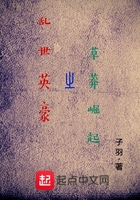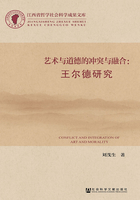They regarded those Christian mysteries, of which they were stewards, just as the Augur Cicero and the high Pontiff Caesar regarded the Sibylline books and the pecking of the sacred chickens. Among themselves, they spoke of the Incarnation, the Eucharist, and the Trinity, in the same tone in which Cotta and Velleius talked of the oracle of Delphi or the voice of Faunus in the mountains. Their years glided by in a soft dream of sensual and intellectual voluptuousness. Choice cookery, delicious wines, lovely women, hounds, falcons, horses, newly-discovered manuscripts of the classics, sonnets, and burlesque romances in the sweetest Tuscan, just as licentious as a fine sense of the graceful would permit, plate from the hand of Benvenuto, designs for palaces by Michael Angelo, frescoes by Raphael, busts, mosaics, and gems just dug up from among the ruins of ancient temples and villas, these things were the delight and even the serious business of their lives. Letters and the fine arts undoubtedly owe much to this not inelegant sloth. But when the great stirring of the mind of Europe began, when doctrine after doctrine was assailed, when nation after nation withdrew from communion with the successor of St. Peter, it was felt that the Church could not be safely confided to chiefs whose highest praise was that they were good judges of Latin compositions, of paintings, and of statues, whose severest studies had a pagan character, and who were suspected of laughing in secret at the sacraments which they administered, and of believing no more of the Gospel than of the Morgante Maggiore. Men of a very different class now rose to the direction of ecclesiastical affairs, men whose spirit resembled that of Dunstan and of Becket. The Roman Pontiffs exhibited in their own persons all the austerity of the early anchorites of Syria. Paul the Fourth brought to the Papal throne the same fervent zeal which had carried him into the Theatine convent. Pius the Fifth, under his gorgeous vestments, wore day and night the hair shirt of a simple friar, walked barefoot in the streets at the head of processions, found, even in the midst of his most pressing avocations, time for private prayer, often regretted that the public duties of his station were unfavourable to growth in holiness, and edified his flock by innumerable instances of humility, charity, and forgiveness of personal injuries, while at the same time he upheld the authority of his see, and the unadulterated doctrines of his Church, with all the stubbornness and vehemence of Hildebrand. Gregory the Thirteenth exerted himself not only to imitate but to surpass Pius in the severe virtues of his sacred profession. As was the head, such were the members. The change in the spirit of the Catholic world may be traced in every walk of literature and of art. It will be at once perceived by every person who compares the poem of Tasso with that of Ariosto, or the monuments Of Sixtus the Fifth with those of Leo the Tenth.
But it was not on moral influence alone that the Catholic Church relied. The civil sword in Spain and Italy was unsparingly employed in her support. The Inquisition was armed with new powers and inspired with a new energy. If Protestantism, or the semblance of Protestantism, showed itself in any quarter, it was instantly met, not by petty, teasing persecution, but by persecution of that sort which bows down and crushes all but a very few select spirits. Whoever was suspected of heresy, whatever his rank, his learning, or his reputation, knew that he must purge himself to the satisfaction of a severe and vigilant tribunal, or die by fire. Heretical books were sought out and destroyed with similar rigour. Works which were once in every house were so effectually suppressed that no copy of them is now to be found in the most extensive libraries. One book in particular, entitled Of the Benefits of the Death of Christ, had this fate. It was written in Tuscan, was many times reprinted, and was eagerly read in every part of Italy. But the inquisitors detected in it the Lutheran doctrine of justification by faith alone. They proscribed it; and it is now as hopelessly lost as the second decade of Livy.
Thus, while the Protestant reformation proceeded rapidly at one extremity of Europe, the Catholic revival went on as rapidly at the other. About half a century after the great separation, there were, throughout the North, Protestant governments and Protestant nations. In the South were governments and nations actuated by the most intense zeal for the ancient Church. Between these two hostile regions lay, morally as well as geographically, a great debatable land. In France, Belgium, Southern Germany, Hungary, and Poland, the contest was still undecided. The governments of those countries had not renounced their connection with Rome; but the Protestants were numerous, powerful, bold, and active. In France, they formed a commonwealth within the realm, held fortresses, were able to bring great armies into the field, and had treated with their sovereign on terms of equality. In Poland, the King was still a Catholic; but the Protestants had the upper hand in the Diet, filled the chief offices in the administration, and, in the large towns, took possession of the parish churches. "It appeared," says the Papal nuncio, "that in Poland, Protestantism would completely supersede Catholicism." In Bavaria, the state of things was nearly the same. The Protestants had a majority in the Assembly of the States, and demanded from the duke concessions in favour of their religion, as the price of their subsidies. In Transylvania, the House of Austria was unable to prevent the Diet from confiscating, by one sweeping decree, the estates of the Church.
In Austria Proper it was generally said that only one-thirtieth part of the population could be counted on as good Catholics. In Belgium the adherents of the new opinions were reckoned by hundreds of thousands.















